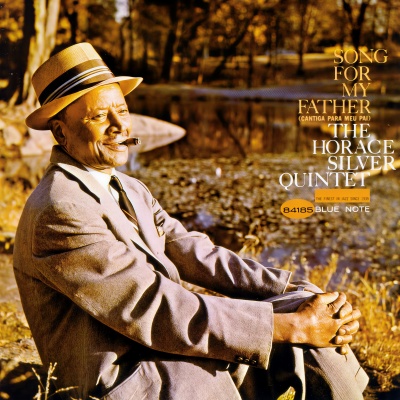
Song for My Father
by Steve Huey One of Blue Note's greatest mainstream hard bop dates, Song for My Father is Horace Silver's signature LP and the peak of a discography already studded with classics. Silver was always a master at balancing jumping rhythms with complex harmonies for a unique blend of earthiness and sophistication, and Song for My Father has perhaps the most sophisticated air of all his albums. Part of the reason is the faintly exotic tint that comes from Silver's flowering fascination with rhythms and modes from overseas -- the bossa nova beat of the classic "Song for My Father," for example, or the Eastern-flavored theme of "Calcutta Cutie," or the tropical-sounding rhythms of "Que Pasa?" Subtle touches like these alter Silver's core sound just enough to bring out its hidden class, which is why the album has become such a favorite source of upscale ambience. Song for My Father was actually far less focused in its origins than the typical Silver project; it dates from the period when Silver was disbanding his classic quintet and assembling a new group, and it features performances from both bands (and, on the CD reissue with bonus tracks, three different sessions). Still, it hangs together remarkably well, and Silver's writing is at its tightest and catchiest. The title cut became Silver's best-known composition, partly because it provided the musical basis for jazz-rock group Steely Dan's biggest pop hit "Rikki Don't Lose That Number." Another hard bop standard is introduced here in the lone non-Silver tune, tenor saxophonist Joe Henderson's "The Kicker," covered often for the challenge of its stuttering phrases and intricate rhythms. Yet somehow it comes off as warm and inviting as the rest of the album, which is necessary for all jazz collections -- mainstream hard bop rarely comes as good as Song for My Father.
